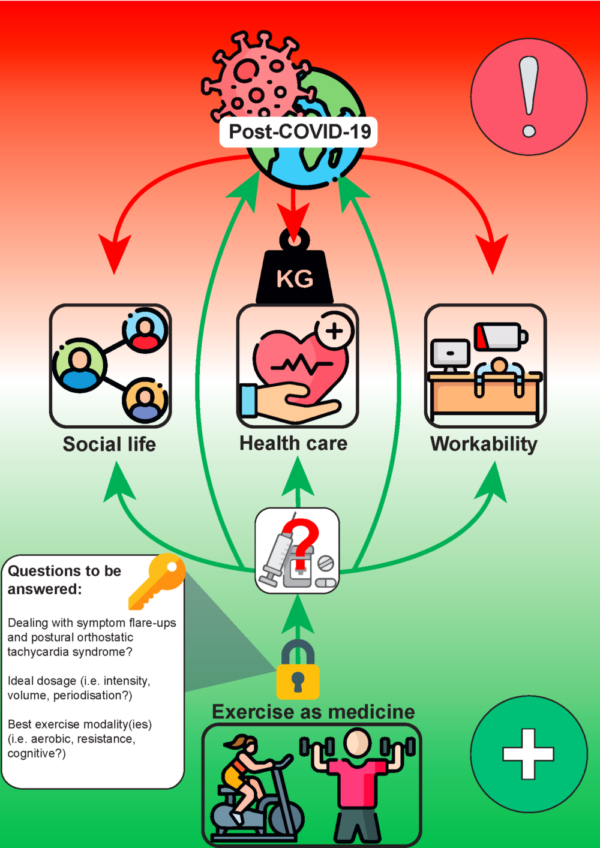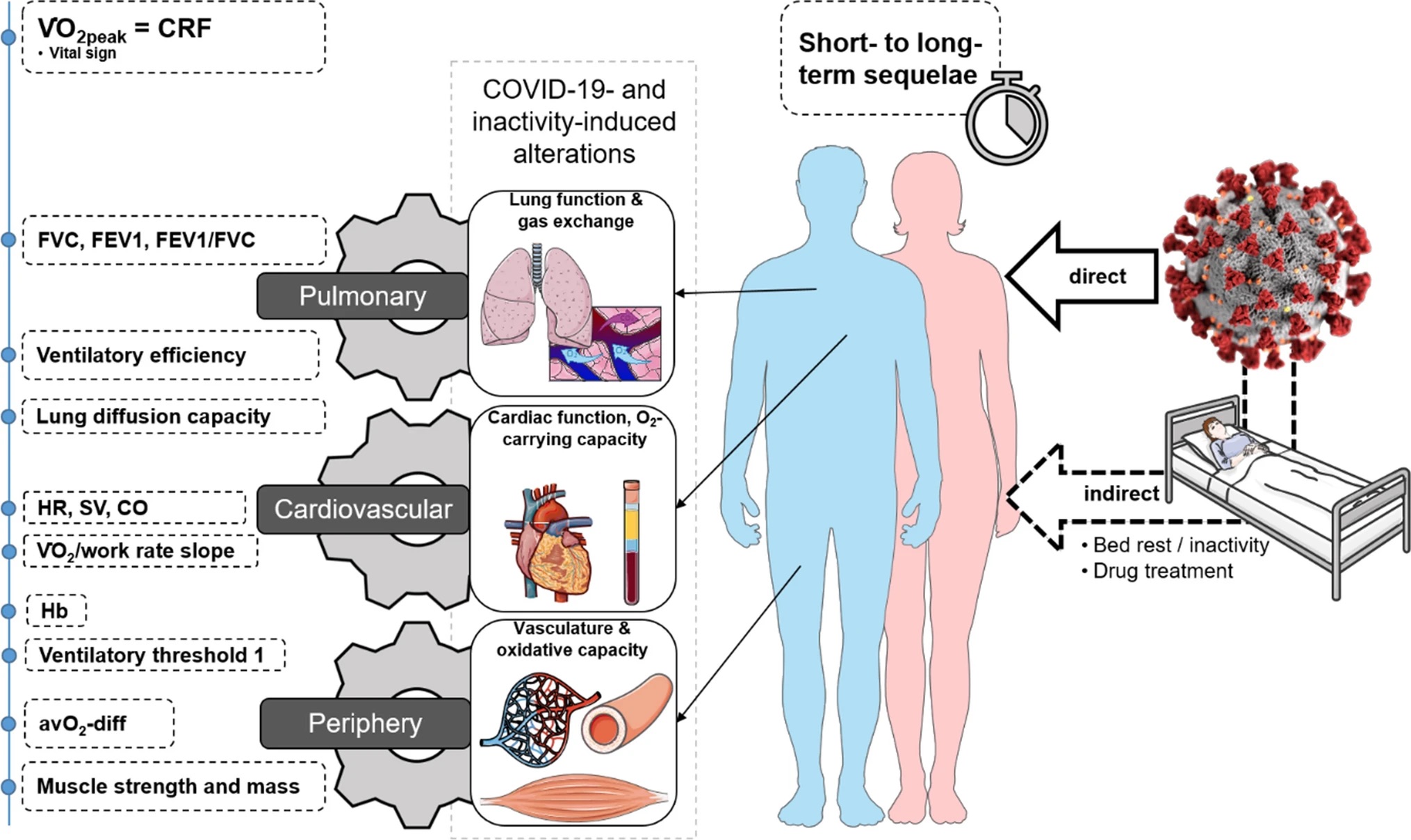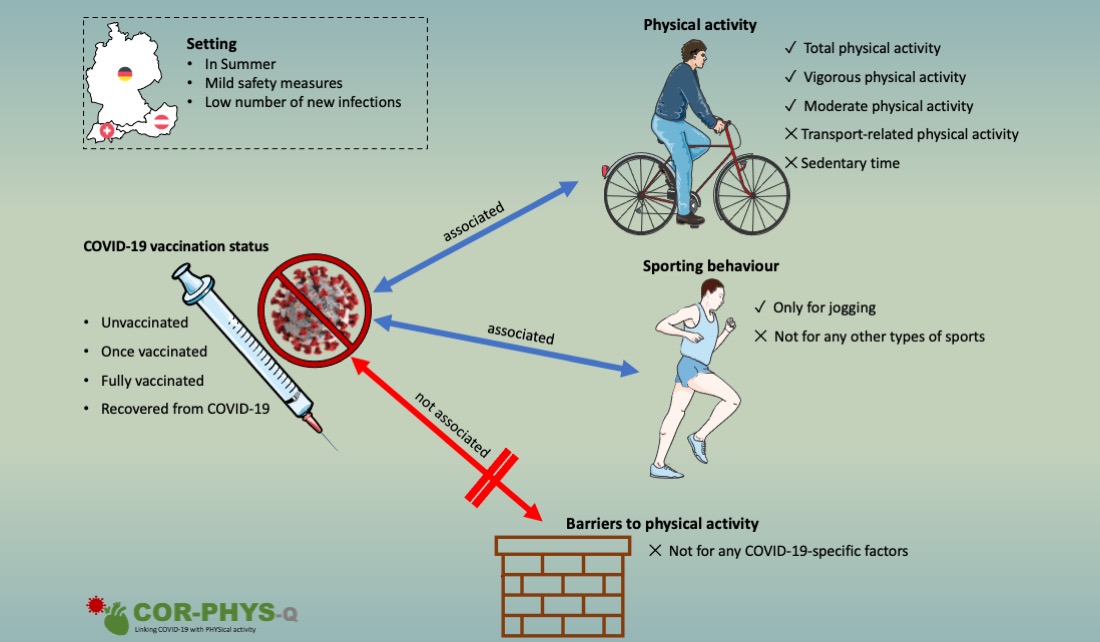Research results and publications
Below you can see all the research results and publications produced within the framework of the COR-PHYS project.
April 2023 – Concerns regarding a proposed paradigm to explain long COVID
In a Letter to the Editor, authors Fabian Schwendinger, MSc, Dr Raphael Knaier and Prof. Arno Schmidt-Trucksäss, MD, express concerns about a recently presented paradigm to explain long COVID (also known as post-COVID-19 condition) as an embodied state with heterogeneous biological, psychological and social factors that might be interrelated.
We highlight that the propagated paradigm shift might be misinterpreted by some readers. The widespread misconception that post-COVID-19 condition is largely psychological or a consequence of deconditioning is still prevalent in the general population and even among some professionals. Therefore, we highlight several shortcomings regarding biological factors in the aforementioned paradigm and add relevant evidence that could contribute to the appropriate interpretation.
The article has been published in The Lancet Respiratory Medicine and is freely available there.
December 2022 – Symptom-titrated and individualised exercise as medicine post-COVID-19: A call to action
In a call to action, authors Fabian Schwendinger, MSc and Prof. Arno Schmidt-Trucksäss, MD, recently highlighted the impact of the long-term consequences of COVID-19 (post-COVID-19) on public health and the personal and professional lives of those affected. Furthermore, the current state of scientific research was critically discussed and the necessary next steps towards an evidence-based and individualised treatment method were addressed.
Here are the main points of the publication:
- Post-COVID-19 has far-reaching public health, social and occupational consequences for which there are currently no effective treatments.
- Exercise can be helpful in treating the multiple physiological and psychological consequences of COVID-19, provided it is prescribed appropriately and based on scientific evidence. Studies are needed to investigate the feasibility and safety of different exercise programmes in these patients.
- In our view, exercise therapy must be evidence-based and individually tailored to the needs of the patient. The authors promote exercise as medicine as a treatment option in some patients after COVID-19. The presence of post-exertional malaise or postural-orthostatic tachycardia syndrome needs special consideration.
The full article is freely available in English in the journal Sport & Exercise Medicine Switzerland (SEMS).
September 2022 – Exercise intolerance post-COVID-19 appears to have multiple causes and is not solely due to deconditioning.
The recently published review article provides a detailed overview of existing studies looking at exercise intolerance and possible underlying mechanisms up to one year after disease onset. We were able to show that not only deconditioning, as claimed by many studies, but also peripheral followed by cardio-circulatory limitations as well as diffusion disorders of the lung are central to the long-term consequences of COVID-19. The article was published in Sports Medicine and is freely accessible there.
Jan 2022 – COVID-19 vaccination status appears to be associated with physical activity in German-speaking countries (COR-PHYS-Q study)
Using a questionnaire, adults in Switzerland, Austria and Germany are surveyed at three time points – August 2021, December 2021 and August 2022. Information is collected on physical activity, current health status and COVID-19 vaccination status. Results from the summer 2021 survey round show a correlation between vaccination status and physical activity. This data could help improve COVID-19 activity recommendations in the future. You can access the pre-print of the study here.
Dec 2021 – Study protocol published for systematic review and meta-analysis investigating the impact of COVID-19 protective measures on physical activity in adults
The protocol is published in Systematic Reviews.


